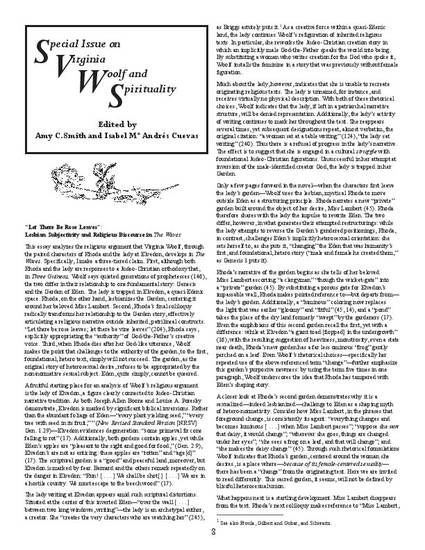
This essay analyzes the religious argument that Virginia Woolf, through the paired characters of Rhoda and the lady at Elvedon, develops in The Waves. Specifically, I make a three-tiered claim. First, although both Rhoda and the lady are responses to a Judeo-Christian orthodoxy that, in Three Guineas, Woolf says quieted generations of prophetesses (146), the two differ in their relationship to one fundamental story: Genesis and the Garden of Eden. The lady is trapped in Elvedon, a quasi-Edenic space. Rhoda, on the other hand, lesbianizes the Garden, centering it around her beloved Miss Lambert. Second, Rhoda’s final soliloquy radically transforms her relationship to the Garden story, effectively articulating a religious narrative outside inherited, patrilineal constructs. “Let there be rose leaves; let there be vine leaves” (204), Rhoda says, explicitly appropriating the “authority” of God-the-Father’s creative voice. Third, when Rhoda dies after her God-like utterance, Woolf makes the point that challenges to the authority of the garden, to the first, foundational, hetero text, simply will not succeed. The garden, as the original story of heterosexual desire, refuses to be appropriated by the non-normative sexual subject. Eden, quite simply, cannot be queered.

This article was published in a Special Issue on Virginia Woolf and Spirituality, edited by Amy C. Smith and Isabel Mª Andrés Cuevas. Copyright © 2011 The Author. All rights reserved.